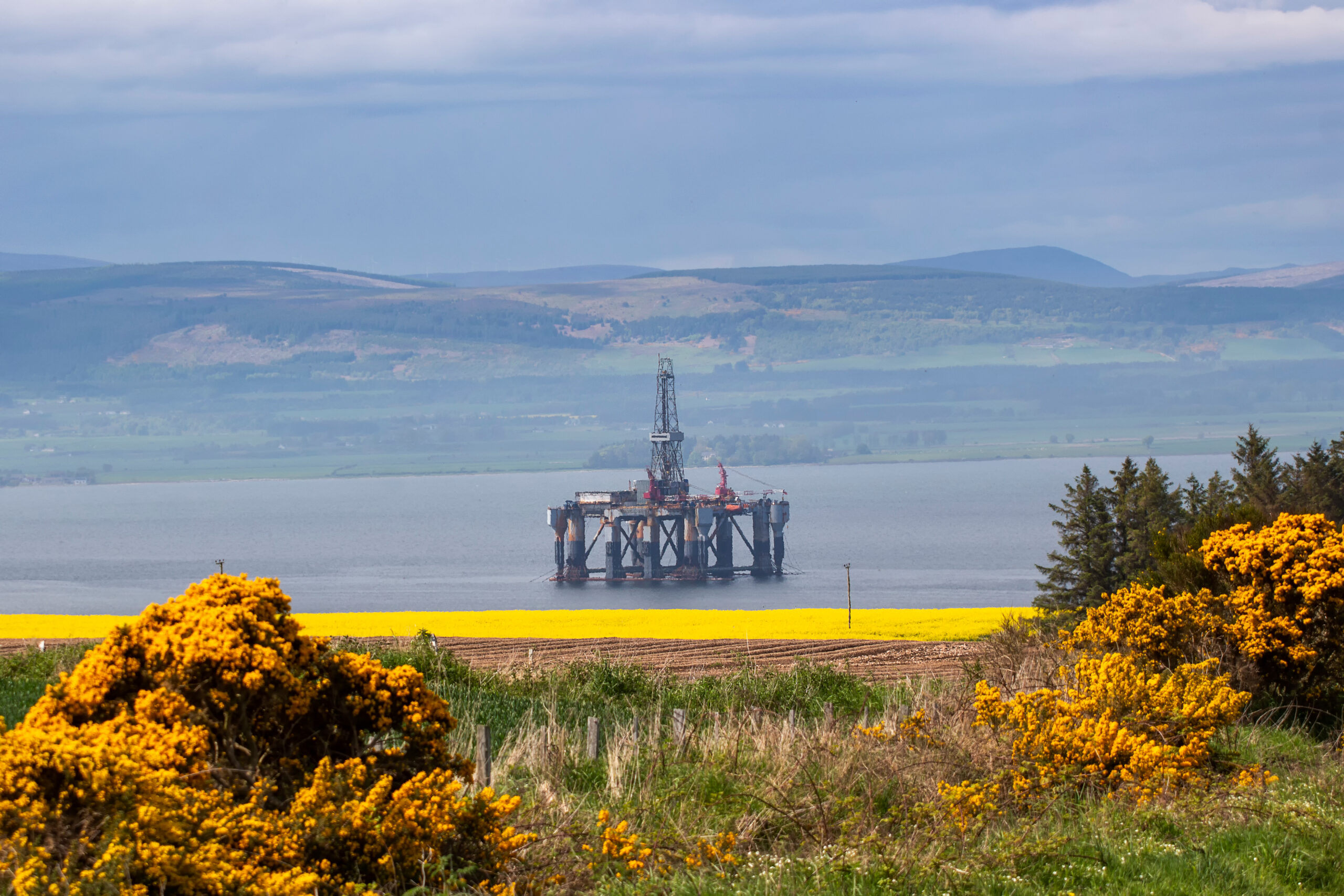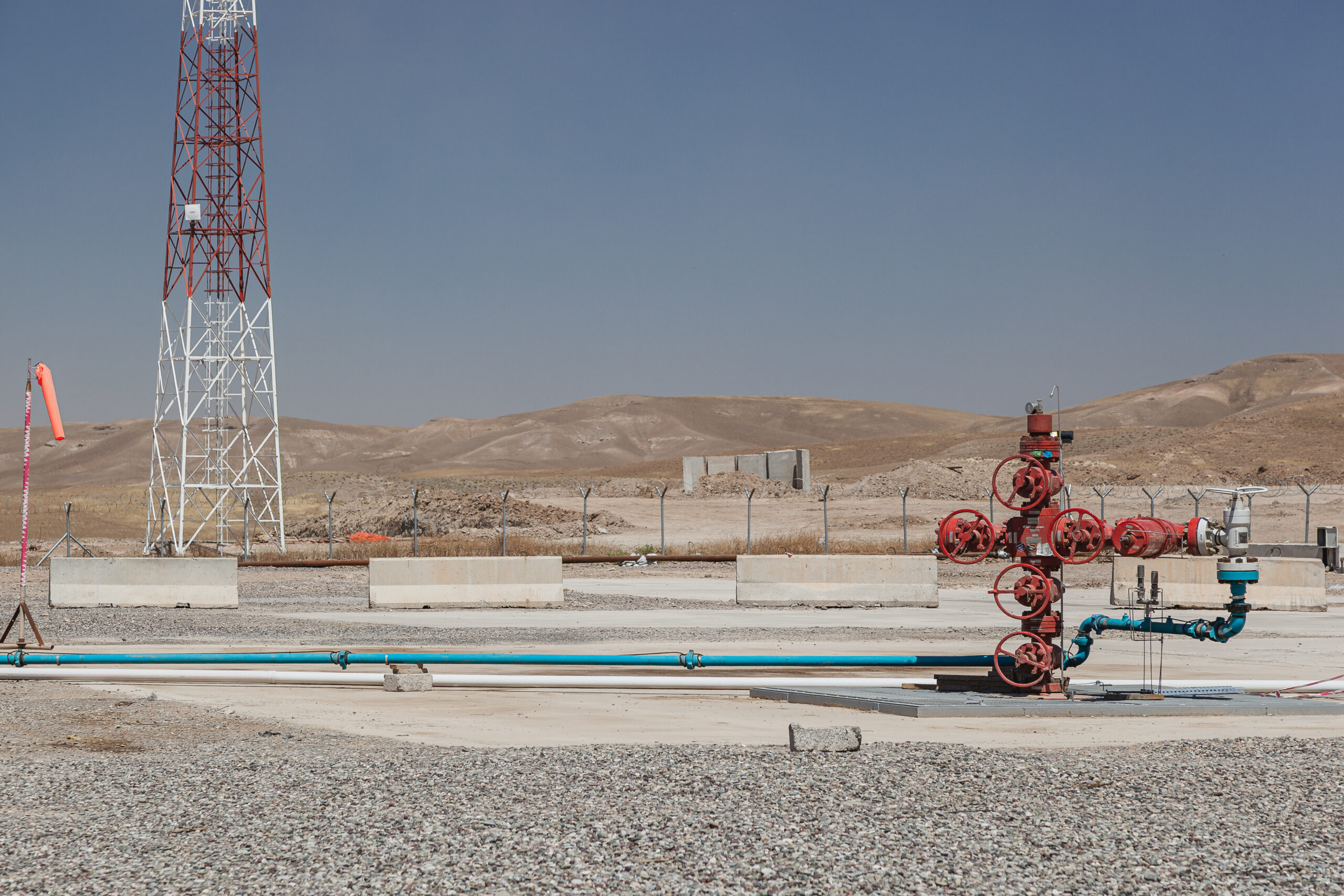Should the UK be granting more North Sea oil and gas licences?
The UK government has said it will grant more than one hundred North Sea oil and gas licences this autumn.

“The era of global warming has ended and the era of global boiling has arrived”, said a stern-faced Antonio Guterres in a landmark speech on climate change last month. Speaking in New York, the UN Secretary General described climate change as “terrifying.”
“The air is unbreathable. The heat is unbearable. And the level of fossil fuel profits and climate inaction is unacceptable,” he said. In a call to arms, he urged leaders to lead and to “accelerate climate action now.”
A few days later, some three thousand miles away in a rain-soaked Aberdeen, Rishi Sunak, the UK Prime Minister, was sending a very different message to the British public.
He announced that his government would grant more than one hundred North Sea oil and gas licences this autumn. Sunak also outlined ambitious plans for a Carbon Capture and Storage (CCS) programme, which will be spearheaded by two new plants – one at St Fergus in Aberdeenshire and another on the mouth of the Humber.
With plans already under way to build CCS facilities in Teeside and on the Mersey, the government hopes that the four facilities will be able to capture the millions of tonnes of carbon dioxide generated by the UK’s North Sea oil and gas fields.
Is maxing out North Sea oil and gas reserves necessary or sustainable?
But is further exploration justifiable on sustainability grounds? Professor Stuart Haszeldine OBE, a professor of carbon capture and storage at the University of Edinburgh does not think so. He likened the planned North Sea expansion to a person trying to wean themselves off nicotine. Speaking on BBC Newsnight, he said that “it is very strange to go out and buy a whole truck load of cigarettes if you are trying to give up smoking. That is what we are trying to do today.”
The Prime Minister’s announcement also drew criticism from Uplift, an environmental campaign group. Its founder and director, Tessa Khan, said, “The UK government’s own independent climate change advisers made it clear that new fossil fuel infrastructure is not in line with the UK’s net zero targets. That reinforces the conclusions that we have from the IEA which published a net zero pathway in 2021 that was clear that there is no room for new oil and gas investments in a net zero 1.5 degrees celsius consistent scenario.”
With the European Climate Service revealing that the world’s 27 hottest days ever were recorded last month, Sunak defended “maxing out” the North Sea’s last oil and gas fields as necessary to not only guarantee the UK’s energy security, but reduce its reliance on imported LNG from the USA, Qatar and pipeline gas from Norway.
Speaking from the Granite City, Sunak said that the UK government’s approach to use its own energy supplies was “entirely consistent with transitioning to net zero because we are going to need it for decades.” He added that it was “far better for our economy, for jobs, for climate emissions” that we extract energy from the UKCS “rather than shipping it from half way around the world.”
The Energy Trilemma a factor in government decision-making
It is a position that Professor Paul de Leeuw, the Director of the Robert Gordon University Energy Transition Institute, understands. While de Leeuw, who is also Chair of the National Energy Skills Accelerator, is a strong advocate for a net zero Britain, having worked in the global energy sector for over 35 years, he understands better than most the delicate tightrope on which governments must tread.
“Governments must view energy policy through a much wider lens than most organisations. In addition to sustainability, they must also take energy security and affordability – the other two pillars of the Energy Trilemma – into account when making decisions. The challenge that the UK faces is that the transition from fossil fuels to renewable energy is simply not going as quickly as originally envisaged. The UK is not building windfarms fast enough, is not reducing demand for fossil fuels quickly enough, nor is it developing the required net zero infrastructure to match. With oil and gas continuing to be a key part of the energy mix for the foreseeable future, the government has a choice to make between using more of the oil and gas produced in the UK or importing more from overseas, which often comes at a higher carbon footprint.”
With the UK lacking short-duration energy storage, Professor de Leeuw believes that in the short-term using gas to fill the void makes great sense. “The UK currently has less than ten days of gas storage and in extreme weather events, when more energy is needed, natural gas from the UKCS or from Norway via pipeline remains a much better option than LNG, which is four times more carbon intensive than gas extracted from the North Sea.”
LNG 4 x more carbon intensive than domestic reserves
To illustrate de Leeuw’s point, a report published by the North Sea Transition Authority (NTSA) comparing the carbon intensity of UK gas with imported LNG reveals that despite only supplying the UK with 23 percent of its gas supply last year, Qatari (9%) and U.S. (14%) LNG accounted for over 54 percent of the UK’s C02 emissions.
But what about energy security? Is oil and gas from the North Sea really needed to guarantee security of supply? Uplift’s Tessa Khan is not convinced. She told Gas Outlook that “the government’s own statistics show that last year about 80% of the oil we produced and the equivalent of 60% of North Sea gas was sold on international markets” and so the government’s energy policy “would not help with our energy security, nor (would) it significantly displace imports.”
She explains, “The government cites energy security as a major reason for expanding North Sea oil and gas, but last year, when Russia invaded Ukraine and the price of oil and gas soared, following a surge in demand, the UK’s energy exports actually spiked. Gas exports were triple what they were in 2021. That’s because the reserves are owned by private companies and they were getting a better price for the oil and gas in Brussels than they were in London. So, just because we have a domestic industry, it doesn’t mean that we are automatically entitled to the oil and gas it produces.”
However, Professor de Leeuw explains that “the vast majority of gas that is produced in the UK stays in this country, with only a fraction being exported. While it is true that much of the oil produced in the North Sea leaves our shores, the picture is much more complex than many people realise. When oil is sent to Europe, it is simply due to the fact that the UK doesn’t have the capability or capacity to refine all of its crude. So it is refined in North-West Europe. However, it is then sent back to the UK in the form of petrol, diesel or kerosene.”
The windfall tax, and a talent shortage
But for the government and the NTSA, one of the greatest threats to UK energy security is the windfall tax, which some fear will stunt development in the UKCS. OEUK, the voice of the offshore oil and gas sector, for example, says 90 percent of companies have scaled back plans to invest in the North Sea as a result of the Energy Profits Levy (EPL), which was introduced in May last year. While OEUK says that the Energy Security Mechanism “marked a step in the right direction for rebuilding confidence”, the long term future is uncertain.
Another key issue is the talent shortage in the energy sector. Prior to Prime Minister Sunak’s announcement, it was envisaged by the industry that many offshore workers with transferable skillsets would transition from fossil fuels to renewable energy jobs. However, with exploration and extraction likely to be ratcheted up in the North Sea over the coming decades, more offshore workers might be tempted to stay put. If this turns out to be the case, a question many are asking is who will build the renewable infrastructure of the future?
Paul de Leeuw sees the renewable energy and fossil fuel sector as inextricably linked. He says, “many of skills and capabilities required for developing new wind farms, hydrogen facilities and carbon capture and storage plants are very similar to those we already have in the oil and gas sector. Based on our analysis, over 90% of the oil and gas workforce have medium to high transferability to the renewables sector, providing the UK renewables sector with ready access to a world-class supply chain and workforce.”
Rosemary Harris, a Just Transition Campaigner for activist group Platform, notes, however, that there is some way to go before this vision can be realised.
She says, “…We know that many offshore workers are willing and ready to embrace the transition away from oil and gas, but are coming up against barriers and lacking in opportunities to do so. With some workers making the transition already, we should be focusing time and money on enacting the policies they have suggested, like a job guarantee and funded retraining opportunities to build the clean energy industry we need for workers, communities and the planet.”



